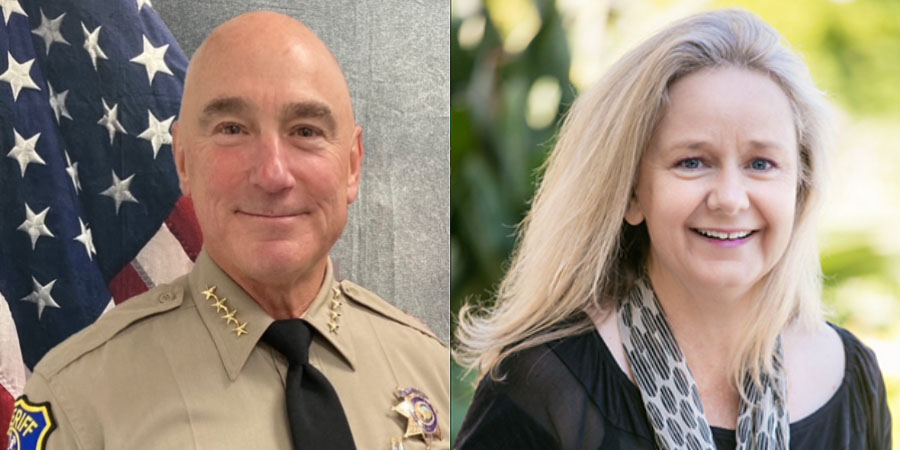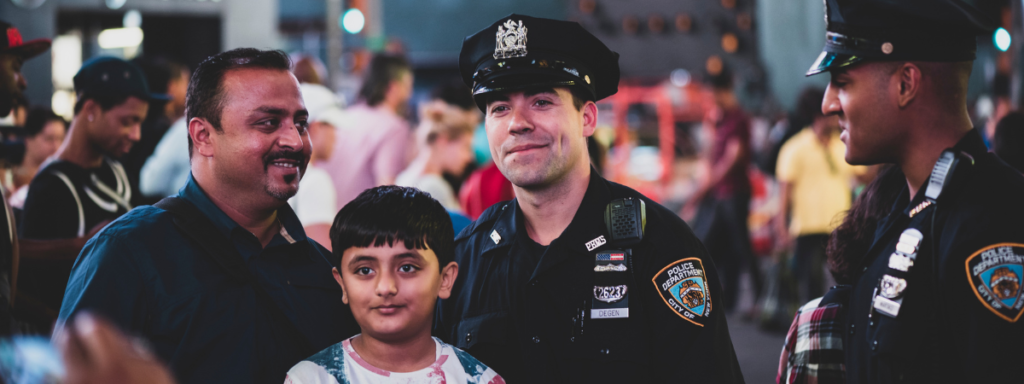Articles
What we’re contemplating, doing, and reading.
The Evolving Work of Law Enforcement: An Executive’s Viewpoint
The Evolving Work of Law Enforcement: An Executive’s Viewpoint
Law Enforcement and Public Safety personnel perform challenging roles, often in high-stress conditions. Compassion Institute partnered with Law Enforcement and Public Safety leadership to design resilience, compassion, and leadership training that supports individual resilience and wellness, and that provides skills to help meet these daily challenges over the span of a career in public service.
Courageous Heart’s Program Director, Julie Learmond-Criqui, sat down with Santa Clara County Sheriff and retired Chief of Police, Robert Jonsen, to talk about how challenges in the profession, and the qualities required to meet them, have changed over time.
Law enforcement is a very challenging profession in many ways. Do you see any differences now between the kinds of challenges you faced early in your 35-year career and the kind of challenges that are ever-present for officers today?
Yes, law enforcement, public safety, and public service, actually, are constantly evolving, and the profession has definitely changed over the years. You know, 30-35 years ago, we really were there to keep the peace, reduce crime, and keep communities safe. But the role of a police officer has evolved slowly and continuously to the point where officers are almost the “caretakers of all things.”
Often, in responding to a call, we are encountering members of the community in desperate need of the basic amenities of food and shelter, or who need specialist mental healthcare and support, and who may not have access to these services.
Sometimes situations can be pushed over to law enforcement to take care of when another agency does not have the resources. And that is fine because law enforcement is there for the betterment of the community, but we have to make sure we’re training, hiring, and recruiting people that understand this constant evolution.
I do think we’ve been doing a better job in this profession of evolving with the times and really preparing people to be open, and to be engaged with their community. That’s one of the things that I’ve noticed probably more than ever is the engagement piece that was lacking when I first came into law enforcement. A lot of the time it was “us versus them,” and now it’s becoming far more “it’s all of us together”—which is great because that’s how we get communities where they need to be.
I’m excited about that part of it. I’m excited about the men and women coming into the profession with their eyes wide open, and especially after the last couple of years where there was tremendous scrutiny.
When I was still a Police Chief, I honestly didn’t know when we started hiring again if anyone would apply, and who they would be. But over the last couple of years—at least here in the Bay Area—we have seen some outstanding individuals coming into this profession who truly want to serve their community in any way possible. That part is exciting to see and that will continue.
And thinking about personal qualities—there are doubtless certain personal qualities that are requirements to be able to do this job really well. Has that list of qualities expanded over the years or is the emphasis in any way different?
Yes, historically law enforcement, because of its paramilitary structure, has always heavily recruited out of the military. And that’s served us well because a lot of the characteristics, like work ethic, of these young men and women are very much aligned with this profession.
I’m also realizing that one of the things we need to make sure of is that individuals coming into the profession have is empathy, because we can become a little colder, a little more jaded, and a little more robotic at times as the profession carries on. I think keeping that human connection piece engaged is very, very important for the future of this profession.
I’m starting to see a lot more individuals coming in with different backgrounds which is great. I think the diversity piece and the inclusive piece is important. And having that openness and that willingness to realize that everybody can make us better and that we don’t all have to come out of the same mold. I think that’s almost what law enforcement had done for many years. They were always trying to recruit the same type of individual, whereas now we’re starting to see the value of all individuals and what they can bring to the team.



